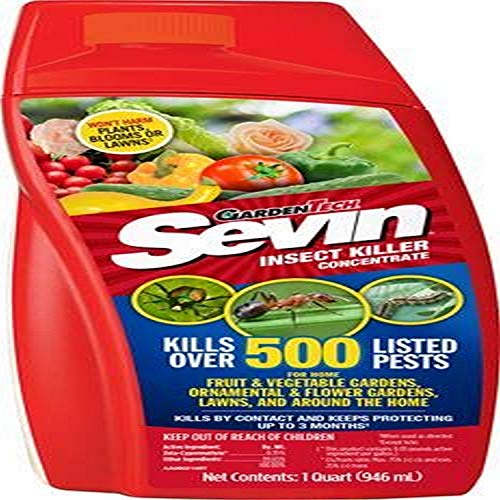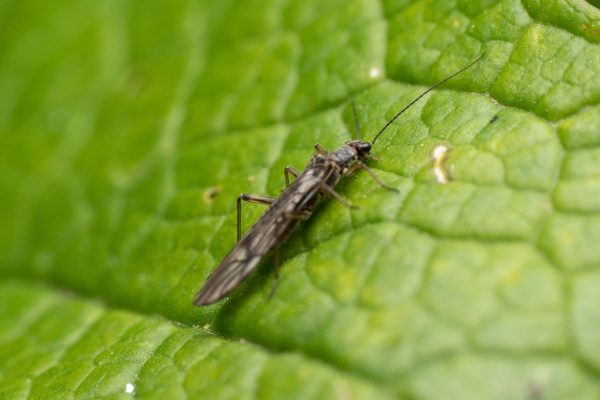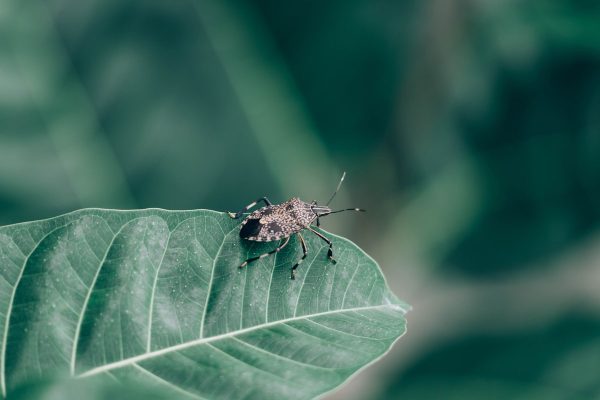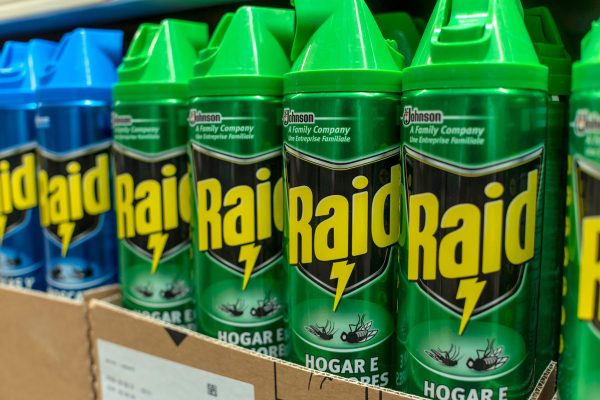It's not enough to just read the product label. There are times when you need to compare one insecticide to another to see which one will work best for you. In this article, we've researched the similarities and differences between neem oil and Sevin pesticides to help you come up with the right choice.
Neem oil can be used both indoors and outdoors. It is safe for humans and most wildlife but you have to do the leaf test to confirm if it is safe to use on your plants. Sevin is safe for all plants. However, Sevin is toxic for humans and pets which is why it is required for outdoor use only.
Keep on reading to know the different factors that you need to consider when choosing between neem oil and Sevin insecticides. We'll also answer if Sevin is safe to use for all plants and if you can mix these two insecticides. Let's get started!
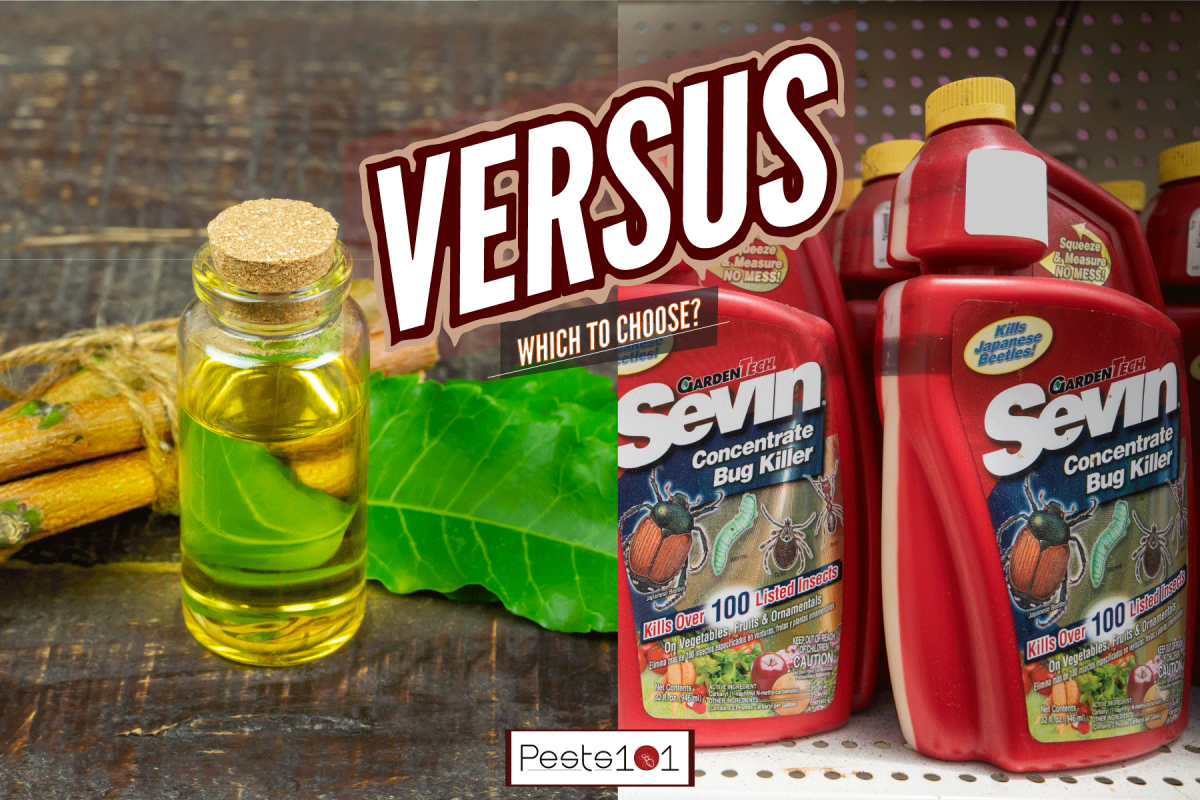
Which insecticide is more effective: Neem oil or Sevin?
In your search for the best pesticide to use in your home, you'll come across a wide variety of choices. Some are made of natural ingredients while some are not. Some can be used indoors while some are strictly for outdoor use only. Some can kill the pests in an instant while some need more time.
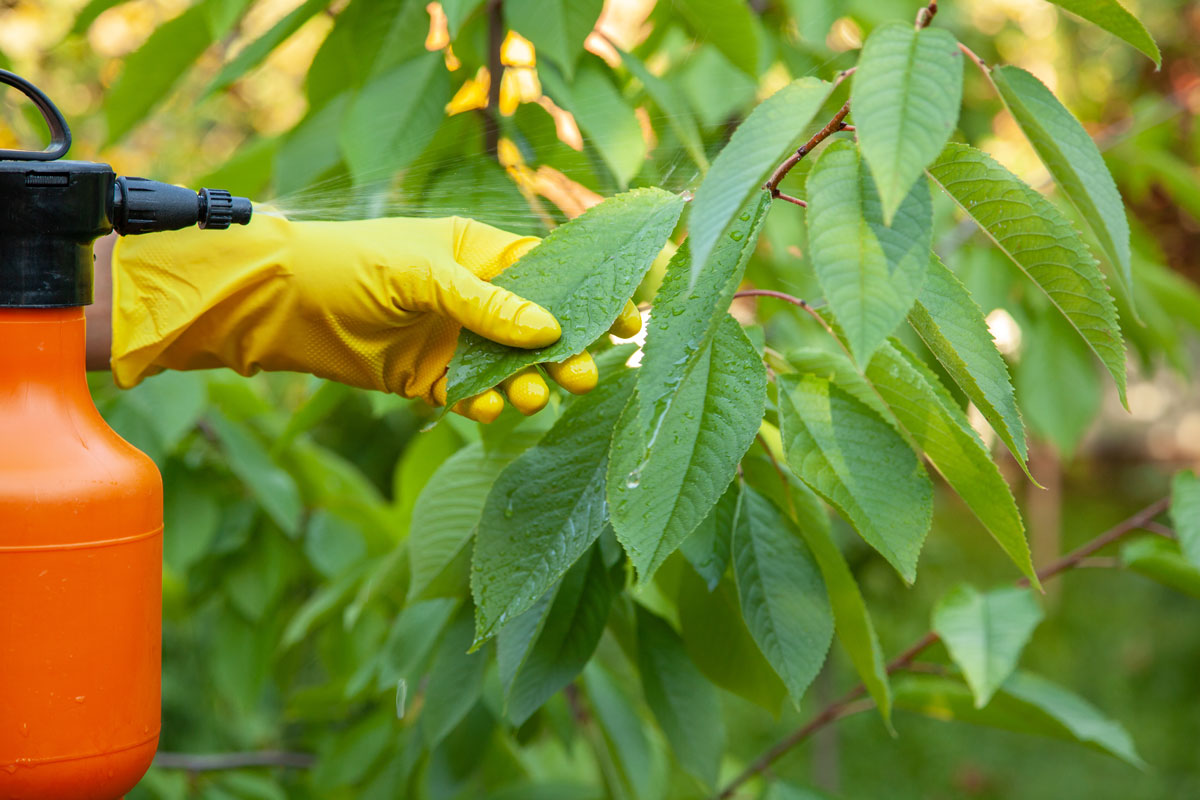
Truth is, not all pesticides are created equal. While we cannot say which one is the best out there, we can help you decide which will be more appropriate to use for your particular pest infestation problem.
Let's narrow down the choices into two: neem oil and Sevin. Both are easily available on the market but which one will you choose? We'll compare the two pesticides based on the following factors: type of insecticide, toxicity, indoor or outdoor use, and available formulas.
Neem Oil Pesticide
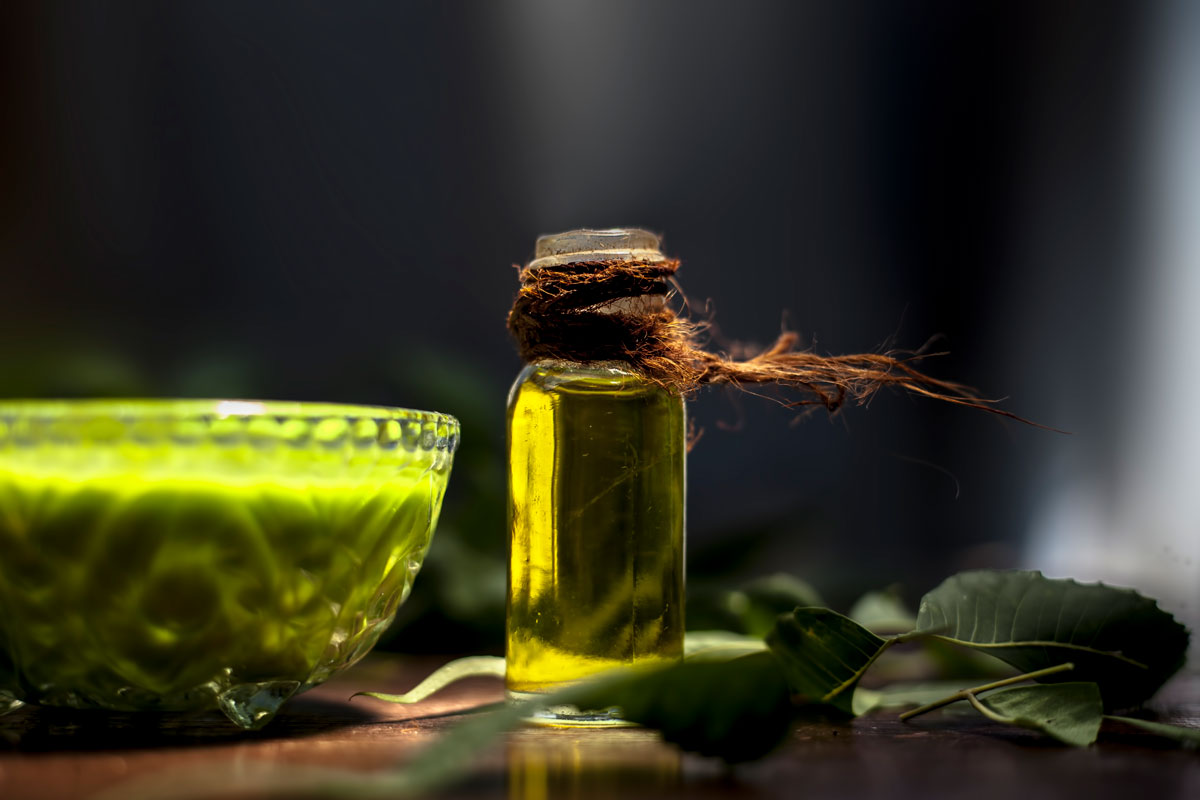
Neem oil is a natural pesticide that has been extracted from the seeds of the Azadirachta indica tree. It has a low level of toxicity for humans and most wildlife. As such, it is safe to use indoors and outdoors.
Check out this neem oil pesticide spray on Amazon.
Application
When applying neem oil to your plants, you have to do the leaf test first. Test one leaf by coating it with this natural insecticide and leave it on for 24 hours. The following day, check if the leaf has turned yellow or not or look for other side effects.
If the leaf turned yellow or had spots, it means neem oil isn't suited for the plant. Although it is a natural pesticide, its oils might be blocking the plant's pores preventing it to breathe and even make food.
According to plant experts, neem oil doesn't work well on herbs and plants with delicate leaves as it could burn their foliage. It's also incompatible with plants that have fuzzy surfaces because the oil cannot stick well to the plant.
Targeted Pests
It targets pests that feast on plants. Neem oil is a systemic insecticide which means that is it absorbed by the plant and is distributed throughout the plant's vascular system. When the pest tries to eat any part of the plant, it would ingest the pesticide and it will then affect its hormones.
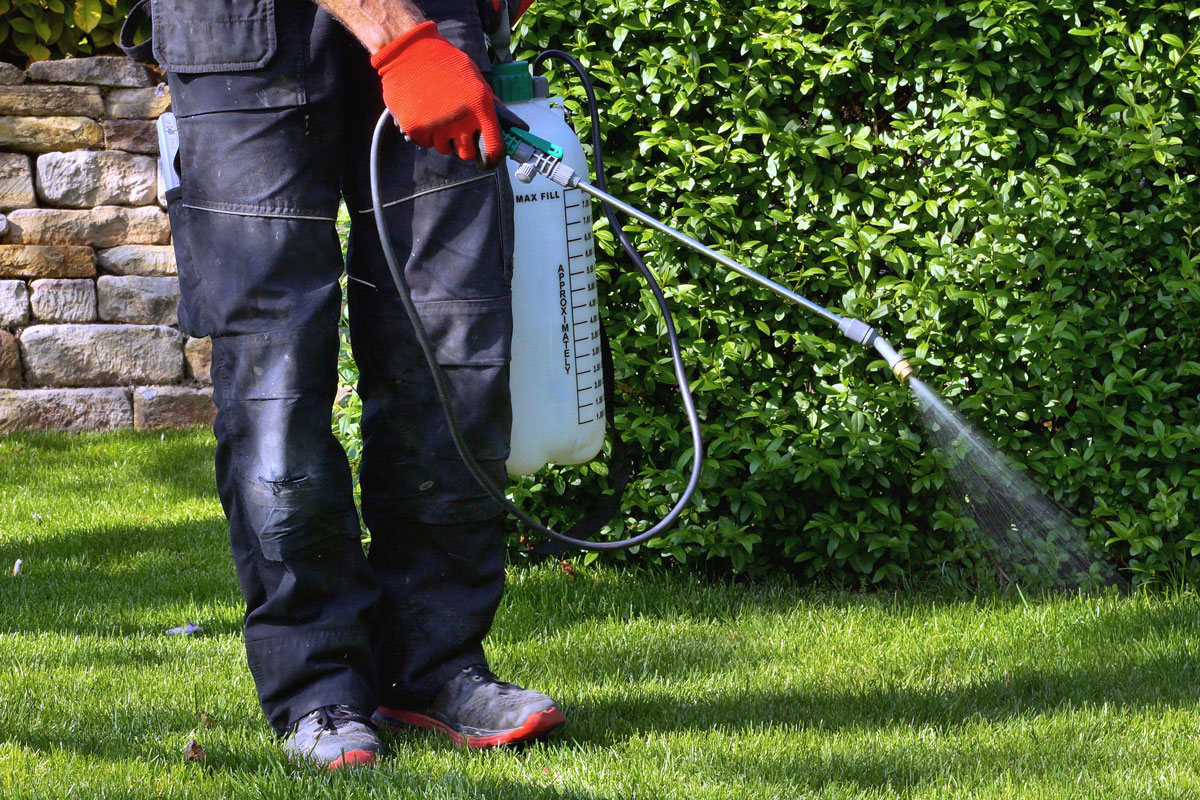
The active ingredients in neem oil, particularly Azadirachtin, causes pests to lose interest in eating and reproducing. They also prevent the maturation of larvae which helps in eliminating the pests. Neem oil also has repellant properties that prevent the insects from coming back to your home or garden.
It usually takes three to four days before you notice the result of using this pesticide. If you're not satisfied with the outcome, you can reapply after two weeks. You can also spray neem oil on your plants as part of pest prevention.
Formulas
Neem oil is available in two formulas: ready-to-use and cold-pressed concentrate.
For the concentrate, follow the instructions for the right neem oil to water ratio and if there's a need for an emulsifier like liquid soap. Of course, you don't have to go through this process if you buy the more convenient ready-to-use formula.
Click this link to find this neem oil cold-pressed concentrate on Amazon.
Sevin Insecticide
Unlike neem oil, Sevin is a synthetic insecticide. It means that it is not made of natural ingredients. It is available in different formulas - ready to use, ready to spray, granules, dust powder, and liquid concentrate.
Depending on the formula, Sevin's active ingredients can be carbaryl, zeta-cypermethrin, or bifenthrin.
It is said to effectively kill over a hundred species of pests including cockroaches, mosquitoes, moths, aphids, and ants.
This pesticide is non-systemic. Unlike neem oil, it is not absorbed by the plant. Once applied to the plant's surface, the insects come into contact with it when they crawl over the plant or eat it. That's how they receive a dose of the insecticide.
Sevin then targets the insect's nervous system which causes it to die almost immediately. However, it would also take three days to two weeks before the infestation is fully treated because the insects need to have direct contact with this pesticide for it to work.
Unlike neem oil, Sevin is recommended for outdoor use only. Its active ingredients, particularly carbaryl, are highly toxic when inhaled or ingested by humans and pets which is why it isn't advisable to use this pesticide indoors.
Is Sevin safe for all plants?
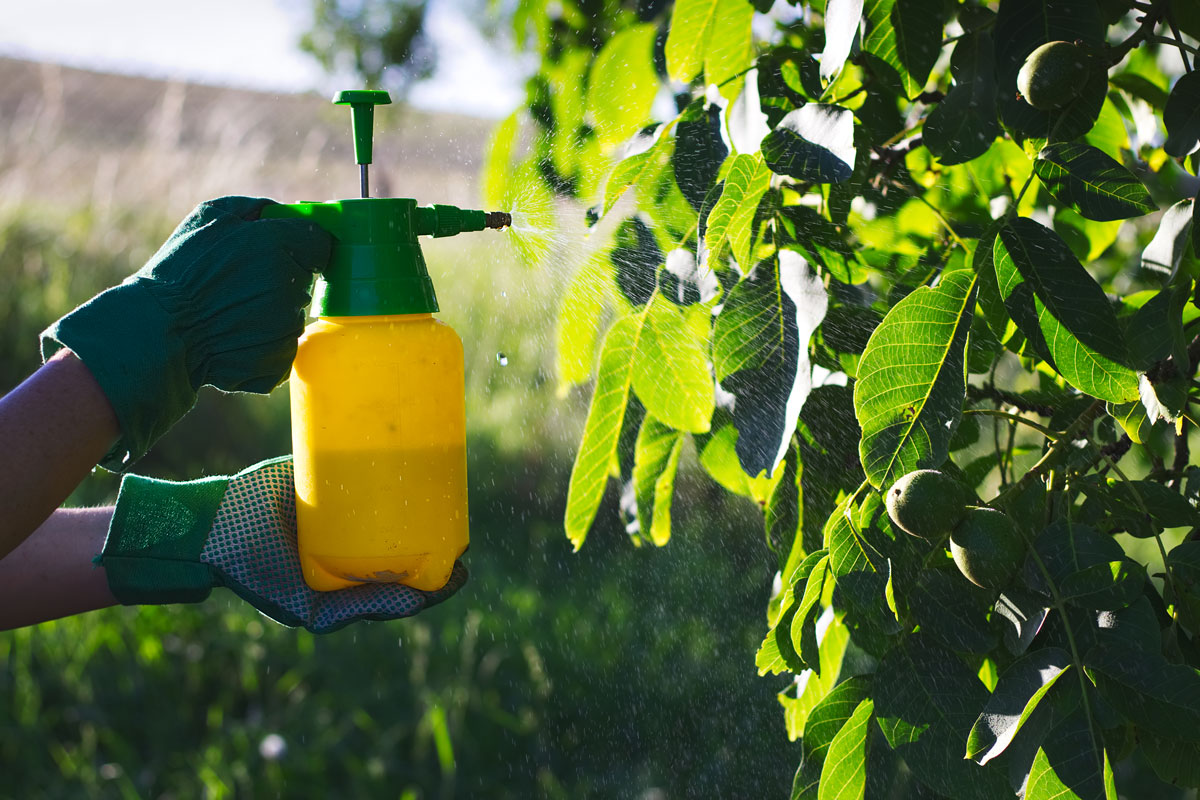
Sevin insecticides can safely be used on all plants, including crops and flowers. But of course, you need to follow the instructions and recommendations regarding its proper application to ensure that you don't harm the plants.
If you're not using the ready-to-use formulas, make sure you follow the correct insecticide-to-water ratio and other preparations needed before applying the product to your plants. Don't overuse Sevin so that you don't kill the beneficial insects around the plants.
Check out this insect killer concentrate on Amazon.
You also need to take note of the preharvest interval if you're applying Sevin to your fruits and vegetables. Apply the insecticide during the recommended period. Afterward, make sure you wash your harvest properly to remove any residual chemicals on the surface.
The Verdict
Use neem oil if you prefer natural ingredients on your pesticides. Since it has low toxicity, it is safe to use for indoor and outdoor applications. But do the leaf test first to be certain that it is safe to use on your plants.
If you're looking for a pesticide with different formulations that will suit your preference when it comes to preparations and usage, Sevin offers different options for you. It is safe to use on your plants. However, take note that it is only for outdoor use because of its high level of toxicity.
Can you mix Sevin and neem oil?
Some people who are problematic with a pest infestation in their homes might have the idea of mixing Sevin with neem oil in the hope of getting a better or faster result.
However, it isn't advisable to mix these two pesticides. They may have the same function of killing harmful insects but they don't work the same way.
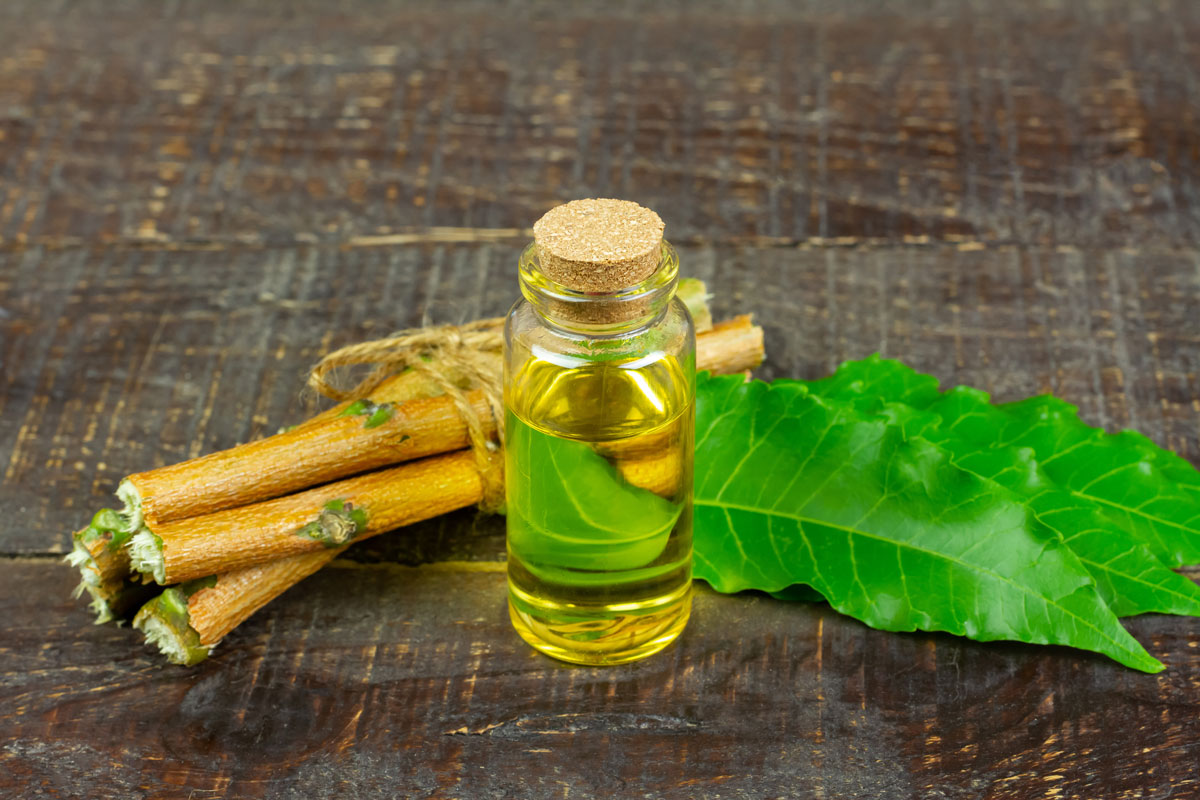
Sevin also specifically reminds users not to combine their products with other insecticides. There's also no proof saying that combining the two would translate to the results that you expect.
What you can do instead is to use these pesticides alternately. This will also give your garden or lawn a break from chemicals by switching to natural ingredients on the following treatment schedule.
Best of all, by using neem oil and Sevin interchangeably, the insects won't develop a higher tolerance for each of these pesticides. This means that their effectiveness won't deteriorate over time.
Final Thoughts
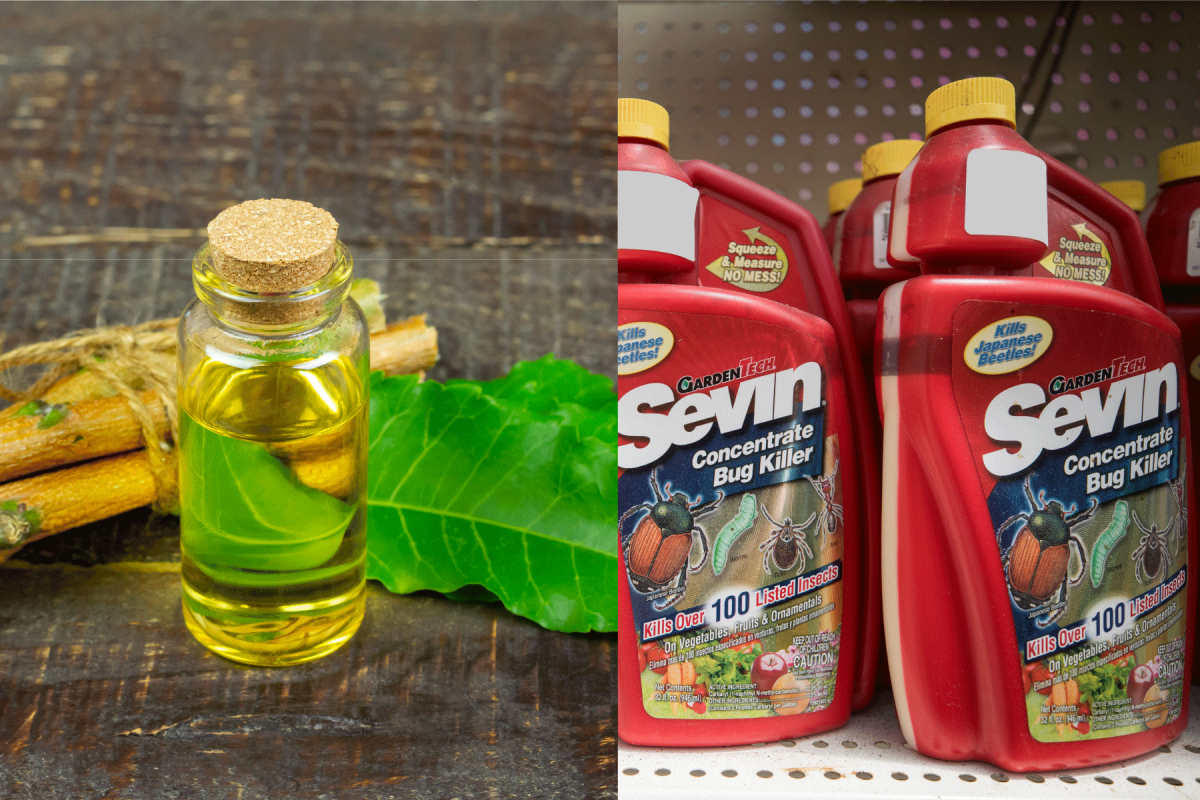
Choose neem oil if you prefer natural ingredients for your insecticide and you can also use it for your indoor and outdoor plants. Choose Sevin if you need a faster-acting insecticide for your outdoor plants. You also get to choose which formulation you're comfortable using.
If you want to know more about how to get rid of pests at home, feel free to read the following posts:




